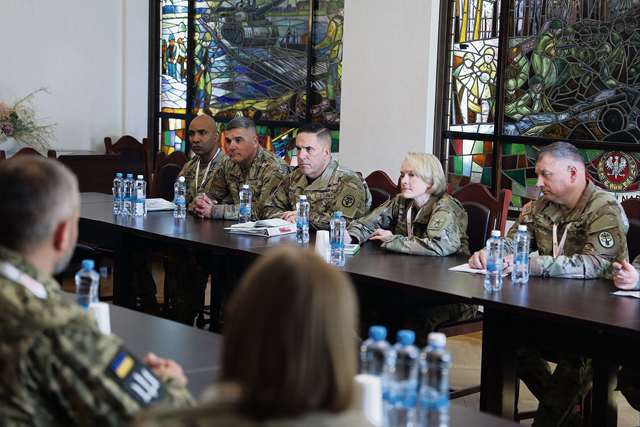
More than 200 military and civilian medical experts from 16 allied and partner nations, including senior Polish military medical officials, gathered in Wroclaw, Poland Sep. 16–18 for the 31st Annual Multinational Military Medical Engagement.
Jointly hosted by U.S. Army Medical Readiness Command, Europe, 68th Theater Medical Command and the Polish Ministry of Defense and Polish Department of Military Medical Services, the theme for this year’s multinational military medical engagement was, “Strengthening Military Medical Partnerships through Synergistic Collaboration.”
This year’s engagement offered a three-day multinational dynamic program consisting of plenary sessions, breakout sessions and exhibitions aimed to improve interoperability and collaborate on challenges and opportunities currently faced by the military medical community in Europe.
According to event planners, this year’s military medical engagement in Poland was an absolute success, and they were pleased with the support and cooperation offered by allied and partner nations that took part.

“The annual Multinational Military Medical Engagement bolsters international partnerships among our NATO and partner nations,” said Dr. John Casey, global health engagements program manager for Medical Readiness Command, Europe.
With approximately 250 participants taking part, attendees came from the United States, Poland, United Kingdom, France, Hungary, Ukraine, Netherlands, Switzerland, Denmark, Lithuania, Norway, Georgia, Federal Republic of Germany, Sweden, Belgium, and Croatia.
“This multinational military medical engagement strengthens international partnerships by fostering professional collaboration and improving interoperability in military medicine across our NATO allies and partners,” said U.S. Army Brig. Gen. Roger Giraud, commander of Medical Readiness Command, Europe. ”As a result, we are all stronger together.”
Giraud, who is also the U.S. Army Europe and Africa command surgeon and director of Defense Health Network Europe, added, “Additionally, it served as a platform for our NATO allies and partners and our medical experts to exchange insights, share experiences, and address common challenges. It was also a unique opportunity to build relationships, make new friends, and create lasting professional connections. These relationships are key in any future combat operation.”
The three-day military medical engagement consisted primarily of breakout sessions on a variety of medical topics including patient evacuation, force health protection, behavioral health practices and emerging threats of infectious disease in the operational environment.
“Our goal this week was to achieve synergistic collaboration across our allies and partners,” added Giraud. “We focused on improving medical interoperability and collaboration on the challenges and opportunities faced by the military medical enterprise here in Europe. We also took a close look at battlefield care and the medical lessons learned there so that our formations are combat ready.”
Also in attendance at this year’s multinational military medical engagement was distinguished guest, U.S. Army Lt. Gen. Mary Izaguirre, surgeon general for the United States Army.
“These type medical engagements are critical for several reasons,” said Izaguirre. “The first is to build trust – that is the foundation of all we do, both in the military as well as in medicine. Second, it allows us to collaborate. It’s important for us to be able to learn together, to train together and to develop doctrine together, so that as we prepare to be able to fight together, we have the best advantage. And finally, there’s interoperability. As we develop this interoperability ahead of time, it allows us to understand each other’s systems to develop a common language, and then to combine our best practices for the benefit of the Soldiers.”
Planning for the 32nd Annual MMME event is already underway. The date and location for that event have yet to be determined.


